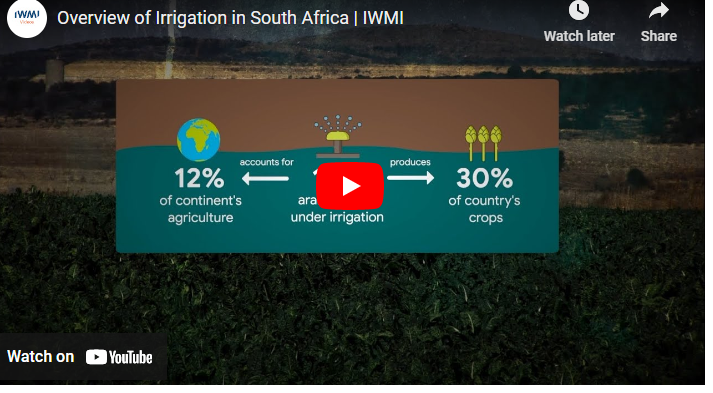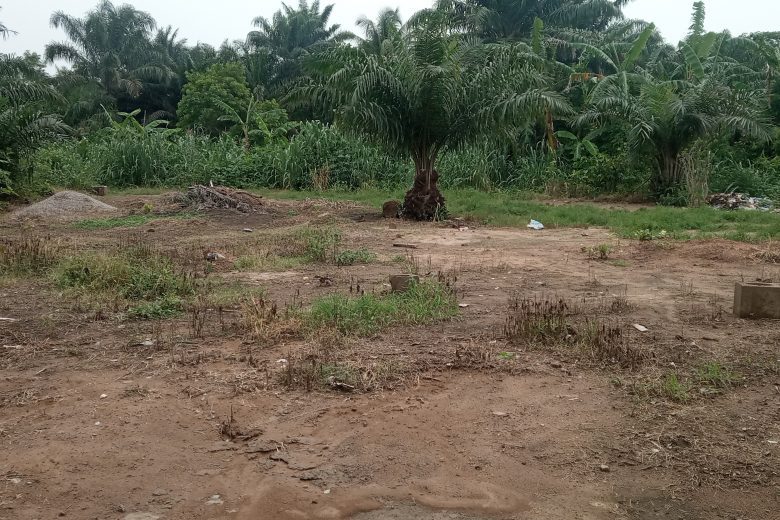In Nigeria, poultry production is an important sector of the agricultural industry, providing both food and income to rural communities. As such, disease prevention and control are essential for the sustainability of the poultry industry.
There are several disease prevention and control strategies that poultry farmers should adopt to reduce the risk of disease outbreaks in their flocks. These strategies include proper biosecurity measures, vaccination programs, improved nutrition, early detection and treatment of disease, and rodent and pest control.
These preventive and control measures are designed to improve and provide timely and accurate care for poultry animals. To learn more, ensure you read through to the end
Disease Prevention and Control in Poultry in Nigeria PDF
Disease prevention and control in poultry in Nigeria is essential to ensure the health and productivity of the nation’s poultry industry. It is an important component of the poultry industry in Nigeria and plays a vital role in the sustainability of the industry.
These strategies for disease prevention and control in poultry in Nigeria Include:
Proper Biosecurity Measures
Biosecurity is the first line of defense against disease. It involves practices such as sanitation, isolation, and quarantine to reduce the introduction and spread of disease. This includes preventing contact between poultry flocks and wild birds, practicing good husbandry and regular cleaning of poultry houses, and avoiding the introduction of new birds into existing flocks.
Tips For Proper Biosecurity Measures Include But are Not Limited To The Following.
#1. Implement A Strict Biosecurity Plan
Develop and implement a biosecurity plan for the farm that includes measures to prevent the introduction and spread of disease. This should include measures such as limiting visitors, disinfecting equipment and vehicles, and wearing protective clothing.
#2. Isolate New Birds
When introducing new birds to the farm, isolate them for at least one month and monitor them closely for signs of disease.
#3. Dispose Of Carcasses Properly
Properly dispose of all dead birds to prevent the spread of disease. This should include burying, incinerating, or composting the carcasses.
#4. Separate Flocks
When possible, keep different flocks of poultry separated to reduce the risk of disease transmission. This includes separating flocks by age group, species, and type.
#5. Monitor Water Quality
Monitor the quality of water on the farm, as poor water quality can lead to disease outbreaks. Ensure that the water is regularly tested and treated when necessary.
#6. Monitor For Disease
Monitor for signs of disease and take preventive and corrective measures to control the spread of diseases.
#7. Isolate Sick Birds
Isolate sick birds from healthy ones to reduce the risk of the spread of diseases.
#8. Disinfect Equipment
Disinfect all equipment such as feeders, drinkers, and cages to reduce the risk of disease transmission.
#7. Restrict the Movement Of Birds
Restrict the movement of birds from one farm to another to reduce the risk of disease spread.
#8. Monitor Feed And Water Sources
Monitor the quality of feed and water sources to ensure that they are free of disease-causing agents.
#9. Quarantine New Birds
Quarantine new birds for some time to ensure that they are free from diseases before introducing them to the farm.
#10. Educate Staff And Visitors
Educate staff and visitors on biosecurity measures to ensure that they practice proper biosecurity protocols.
Vaccination Programs
Vaccination is another important strategy that can help prevent and control certain diseases, such as Newcastle disease, chicken pox, and infectious bursal disease. The vaccination program for Disease Prevention and Control in Poultry in Nigeria should cover all common poultry diseases.
Vaccinations should be administered in a timely and appropriate manner to ensure effective and long-lasting protection against disease.
The first step in the vaccination program should be to identify the common diseases affecting poultry in the area. This can be done through regular monitoring of poultry health, surveillance of poultry mortality, and performing post-mortem examinations, if necessary. Once the diseases have been identified, a suitable vaccine should be selected for each disease.
Vaccines should be obtained from reliable sources and stored according to the manufacturer’s instructions. Vaccines must be handled and administered with care and in strict accordance with the manufacturer’s instructions. Vaccine administration should be done at regular intervals, depending on the type of vaccine, the age of the birds, and the disease.
The vaccination program should include the vaccination of day-old chicks, replacement birds, and adult birds. Vaccines should be administered by experienced personnel and by the label instructions. Vaccines should be administered at the recommended dose and route of administration.
It is important to monitor the effectiveness of the vaccination program. This can be done by regularly collecting and analyzing data on the health of poultry, mortality, and disease outbreaks. This data can help identify problems or potential issues and can help inform changes to the vaccination program, if necessary.
Tips On A Vaccination Program For Disease Prevention And Control In Poultry In Nigeria
- Ensure all farms are registered with the National Veterinary Research Institute (NVRI). This will help to monitor the poultry industry and ensure that farm owners are compliant with industry regulations.
- Make sure all poultry is vaccinated against common diseases such as Newcastle Disease, Avian Influenza (AI), and other diseases. Vaccines should be purchased from reputable suppliers and kept up to date.
- Monitor the health of poultry regularly, including regular health checks and surveillance. This will help to identify any diseases quickly and reduce the risk of transmission.
- Improve biosecurity on all farms, including the use of appropriate physical barriers to prevent contamination.
- Educate poultry farmers on the importance of vaccination and biosecurity. Encourage them to work together to ensure all farms are up to date with vaccines and biosecurity measures.
- Encourage the use of best practices in poultry production, such as proper disposal of poultry waste and regular cleaning of housing and equipment.
- Provide poultry farmers with access to quality veterinary advice and services. This will help them to better manage the health of their birds, as well as respond quickly to any disease outbreaks.
Improved Nutrition
Good nutrition is also essential for disease prevention and control, as it helps strengthen the immune system and reduce the risk of disease.
Poultry is a major source of nutrition in Nigeria, providing a significant amount of the protein, vitamins, and minerals consumed by the population. However, due to inadequate nutrition, poultry in Nigeria is often susceptible to a range of diseases, which can have serious impacts on the health and productivity of the poultry industry.
To improve nutrition for disease prevention and control in poultry in Nigeria, it is important to focus on providing balanced nutrition that meets the needs of the birds. This can be achieved by formulating feeds that are high in protein and micronutrients and low in antinutrients and using feed additives to improve the nutrient content of the feeds.
To provide balanced nutrition, it is also important to ensure that poultry in Nigeria has access to clean and sanitary housing and drinking water. This will help to reduce the spread of disease by reducing the risk of contamination. Additionally, regular biosecurity measures should be implemented to help prevent the introduction of pathogens into the flock.
Regular veterinary visits should be conducted to identify and treat any diseases that may be present in the flock. This will help to reduce the prevalence of disease and improve the health and productivity of poultry in Nigeria.
Tips For Improved Nutrition Measures Include But Are Not Limited To The Following.
#1. Provide High-Quality Feed
Ensure that poultry feed is of high quality and contains the necessary nutrients. It should be free from toxins and contaminants.
#2. Practice Good Sanitation
Keep poultry coops and areas clean and free of debris to reduce the risk of disease.
#3. Provide Plenty Of Water
Provide clean water for poultry to drink and bathe in. This can help prevent the spread of disease.
#4. Supplement Diets
Supplement poultry diets with vitamins and minerals to ensure adequate nutrition and help prevent disease.
#5. Monitor Health
Monitor poultry health regularly to identify early signs of disease and take appropriate action.
#6. Reduce Stress
Minimise stress in poultry by providing them with a comfortable, clean environment.
#7. Use Probiotics
Use probiotics to help maintain the health of the intestinal tract and reduce the risk of disease.
Early Detection and Treatment of Disease
Early detection and treatment of disease are essential for disease prevention and control in poultry in Nigeria. Early detection of poultry diseases can be achieved through several methods, including physical examination, laboratory testing, and surveillance.
Physical examination of birds can help identify abnormal behavior, such as reduced activity, decreased feed consumption, increased mortality, and abnormal droppings. Also, laboratory tests can be conducted to detect the presence of viruses, bacteria, and parasites.
Once a disease is detected, it is important to treat the affected birds promptly and appropriately. Treatment may involve the use of antibiotics, vaccines, or other medications, depending on the type of disease and the severity of the infection.
Antibiotics should only be used as a last resort and should be prescribed by a qualified veterinarian. Vaccines can help prevent the spread of diseases, but they must be administered correctly and regularly. It is also important to ensure strict biosecurity measures are in place to prevent the spread of disease between flocks.
Tips For Early Detection And Treatment Of Disease Include But Are Not Limited To The Following.
#1. Implement A Biosecurity Program
Biosecurity should be the first line of defense in preventing and controlling poultry diseases. To protect your birds, implement strict biosecurity measures, such as limiting visitor access, cleaning & disinfecting poultry housing, and wearing protective clothing when handling birds.
#2. Monitor For Signs Of Disease
Regularly monitor your poultry for signs of disease, such as coughing, sneezing, diarrhea, or lethargy. If you notice any of these signs, immediately isolate the affected birds to prevent the spread of disease.
#3. Provide Proper Nutrition
Proper nutrition is essential for your flock’s overall health and well-being. Make sure to provide a balanced diet that meets the nutritional needs of your birds.
#4. Practice Good Hygiene
Good hygiene is also a key factor in preventing and controlling the disease. Make sure to clean and disinfect poultry housing, feeders, and water containers regularly.
Rodent And Pest Control
Control rodents and insects on the farm, as they can spread diseases. Use approved rodenticides and insecticides, and keep the farm free of clutter to reduce the risk of infestation. Rodents and pest control are essential components of effective disease prevention and control in poultry in Nigeria.
Rodents and other pests can carry and spread a variety of diseases, including avian influenza, Newcastle disease, and salmonellosis. Rodent control measures include the use of rodenticides and traps, as well as exclusion and habitat modification.
Pest control measures may include the use of baits, traps, and insecticides. Also, good biosecurity practices, such as limiting access to poultry houses, keeping bird feed and water clean, and disposing of poultry carcasses properly are essential for preventing the spread of disease.
Regular inspections of poultry houses and barns should be conducted to look for signs of infestation, such as droppings, gnaw marks, or other evidence of pest activity. Identifying and removing potential food sources, such as spilled feed and garbage, can also help to reduce pest populations.
However, it is important to note that working with a professional pest control company can help to ensure the most effective and efficient pest control program.
Tips On Rodent And Pest Control For Disease Prevention And Control In Poultry In Nigeria
- Keep your poultry housing area clean and free of clutter. Remove any debris, food scraps, and other potential nesting or hiding places for rodents and pests.
- Regularly inspect the poultry housing area for signs of rodent and pest activity. Look for droppings, chew marks, and burrows.
- Use traps, baits, and other control methods to reduce rodent and pest populations.
- Keep feed and water containers clean and covered.
- Dispose of dead poultry properly.
- If possible, provide a barrier between the poultry area and the surrounding environment to prevent rodents and pests from entering the area.
- Use rodent- and pest-proof housing for your poultry.
- Monitor the poultry housing area for any signs of disease and take appropriate action if the disease is detected.
- Use protective clothing and equipment when handling poultry to minimize the risks of disease transmission.
Prevention Of Poultry Diseases Pdf
Prevention of poultry diseases involves good biosecurity practices, such as thorough cleaning and disinfection of equipment, proper disposal of poultry carcasses, and maintaining a clean and healthy environment. Vaccination, proper nutrition, and parasite control are also essential for preventing disease.
Is Chicken Poultry?
Chicken is a type of poultry, which includes other birds such as ducks, geese, and turkeys. Poultry is a generic term used to describe domesticated birds raised for their meat or eggs.
Chicken Supplies
Chicken supplies include feed, feeders, housing, bedding, medications, and other items needed to keep chickens healthy and happy.
Disease Prevention And Control In Poultry
Disease prevention and control in poultry involve implementing biosecurity protocols, vaccinating poultry, monitoring for signs of disease, and implementing proper sanitation and nutrition management practices.
Vaccines, antibiotics, and other treatments help to prevent and control diseases, while proper disposal of dead birds and waste minimizes the spread of disease. Careful monitoring of flock health and implementation of best management practices are essential for successful disease prevention and control.
Poultry Disease Control And Prevention Pdf
Poultry Disease Control and Prevention PDF is a guide that outlines best practices for controlling and preventing poultry diseases. It provides information on biosecurity, vaccinations, and other preventative measures to help keep poultry healthy.
Poultry Diseases Symptoms And Treatments Pdf In Nigeria
Poultry diseases in Nigeria range from viral, bacterial, and fungal infections to parasitic infestations. Common symptoms include respiratory distress, decreased egg production, decreased food consumption, and weight loss. Treatment options vary depending on the disease but may include antibiotics, vaccinations, and improved husbandry practices.
Conclusion
Disease prevention and control in poultry is essential for ensuring the sustainability of the industry in Nigeria. Biosecurity, vaccination, good nutrition, and pest control are all important strategies for preventing and controlling disease in poultry. Additionally, monitoring birds for signs of disease and seeking veterinary attention when needed is also important for ensuring the health and well-being of poultry.



